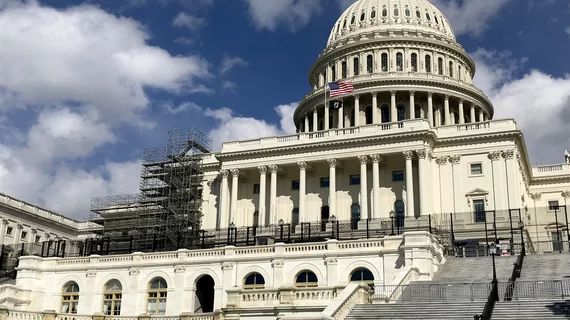Bill introduced in Congress would raise physician reimbursement by 1.9%
A bipartisan bill has been introduced into the House of Representatives to address cuts to the physician fee schedule, which the Centers for Medicare and Medicaid Services (CMS) has proposed at 2.8% for Medicare reimbursement in 2025.
The Medicare Patient Access and Practice Stabilization Act would instead give physicians a pay increase of 1.93% as a temporary fix, with a 4.37% boost to Medicare reimbursement being proposed to counteract the annual rate of inflation and rising costs to run practices.
The bill has not been given a designation yet and no full draft has been made public. However, earlier this month many of the same Congressional leaders signed onto a letter calling for CMS fee scheduling to be permanently tied to the Medicare Economic Index (MEI), which more accurately reflects the rising cost of care.
Currently, Congress is forced to intervene each year to fund Medicaid and raise physician reimbursement.
The Medicare Patient Access and Practice Stabilization Act is co-sponsored by Greg Murphy, MD (R-NC), Jimmy Panetta (D-CA), Mariannette Miller-Meeks (R-IA), Ami Bera, MD (D-CA), Larry Bucshon, MD (R-IN), Kim Schrier, M.D. (D-WA), John Joyce, MD, (R-PA) and Raul Ruiz, MD (D-CA).
Nearly 100 professional associations representing health systems, physicians and patients added their names to a list of supporters in an announcement released by Congressman Murphy’s office.
“America's physicians are at a breaking point and access to high-quality, affordable care is at risk for millions of Medicare patients,” Murphy, a urologist, said in the announcement. “When a physician sees a Medicare patient, they do so out of the goodness of their heart, not because it makes financial sense. Medical inflation is much higher and the cost of seeing patients continues to rise.”
Murphy’s office cited data from the American Medical Association (AMA) that showed physician pay has declined by 29% since 2001.
“Unfortunately, reimbursements continue to decline, putting immense pressure on doctors to retire, close their practices, forgo seeing new Medicare patients, or seek a less efficient employment position. This bipartisan legislation would stop yet another year of reimbursement cuts, give them a slight inflationary adjustment, and protect Medicare for physicians and patients alike,” Murphy added.
The list of supporters of the Medicare Patient Access and Practice Stabilization Act includes the AMA, Medical Group Management Association (MGMA), American Medical Group Association (AMGA), and dozens of other professional associations.

